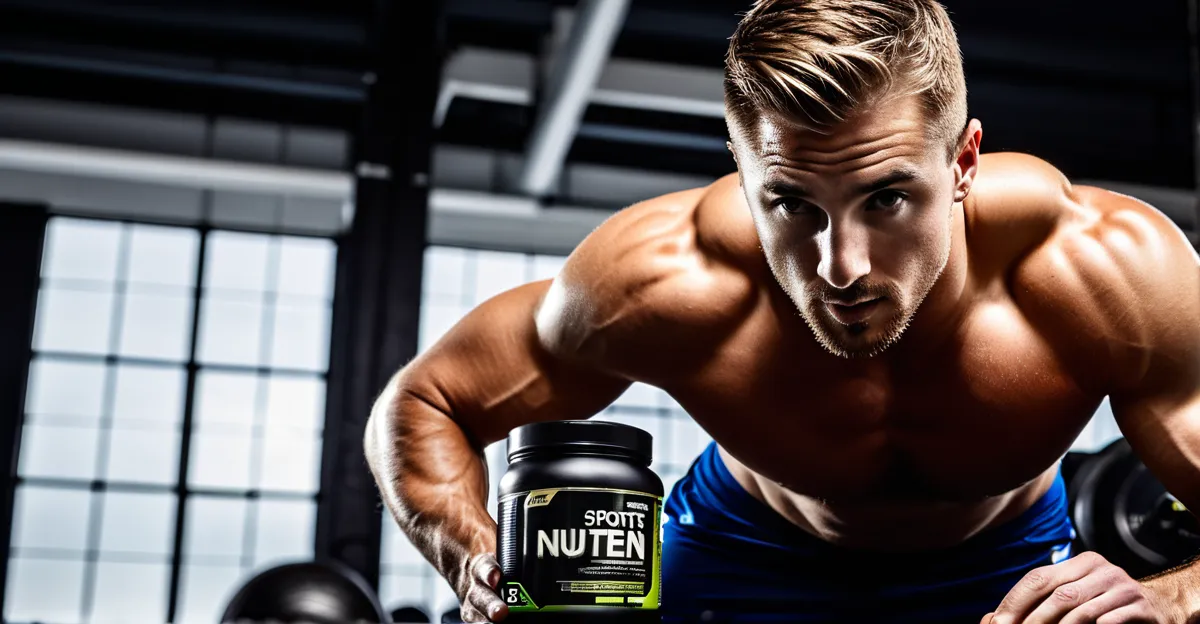Current Innovations in UK Sports Nutrition
The UK sports nutrition trends are rapidly evolving, reflecting a growing consumer demand for products that go beyond traditional supplements. Emerging in the market are innovative new nutrition products UK such as plant-based protein powders and bars. These cater to the increasing number of athletes seeking sustainable and ethically sourced options, aligning with a broader shift in health and environmental consciousness.
Adaptogens, a class of natural substances believed to help the body resist stress, are gaining traction in the UK supplement market. These ingredients, often found in powders and functional beverages, support recovery and mental focus, offering tangible benefits for active individuals. Functional foods fortified with vitamins, minerals, and bioactive compounds are also developing as appealing choices for those wanting convenient nutrition that fits their wellness goals.
Have you seen this : How Can the Evolution of Training Techniques Impact the Future of UK Sports?
Personalised nutrition remains a key trend. DNA-based diet recommendations harness genetic information to tailor nutrient intake specifically to an individual’s metabolism and performance needs. This trend reflects a shift in the UK sports nutrition trends towards precision and customisation, enabling athletes to optimise results with scientifically grounded advice.
Sustainability and ethics continue to influence product development. Consumers now demand transparency regarding sourcing and production, pushing brands in the UK supplement market to prioritise eco-friendly packaging and ingredient traceability. These factors shape not only purchasing decisions but also industry innovation overall.
In parallel : What Impact Does UK Sports Media Have on Athletes’ Wellbeing?
Evolving Fitness Practices and Technologies
Fitness trends in the UK have rapidly evolved with the surge of fitness technology UK, elevating how people approach exercise. Wearable fitness tech and tracking apps now dominate, allowing users to monitor heart rate, calories burned, and activity levels seamlessly. This integration of technology empowers individuals to set precise goals and track progress effectively, making workouts more engaging and personalized.
Alongside tech adoption, hybrid and remote fitness classes have become increasingly popular. These options provide flexibility for those balancing busy schedules or preferring home workouts while still benefiting from professional guidance. The convenience and variety of classes, both in-person and online, reflect the dynamic shift in UK fitness trends toward more accessible and inclusive exercise solutions.
Training methods in UK gyms have also pivoted towards more functional and high-intensity approaches. High-Intensity Interval Training (HIIT), functional training, and group fitness classes lead this trend. These methods deliver efficient, full-body workouts that appeal to a broad range of fitness levels, enhancing strength, endurance, and social motivation.
Together, these evolving fitness practices and technological innovations shape a more personalized, flexible, and effective fitness landscape across the UK.
Influencer Impact and Expert Perspectives
UK fitness influencers have become powerful voices in shaping consumer preferences around health and wellness. Their ability to share personal experiences and quick tips resonates with a wide audience, frequently guiding choices related to exercise regimes and diet plans. These influencers often blend motivation with relatable content, making fitness goals appear more attainable.
However, expert opinions on nutrition UK frequently emphasize the importance of evidence-based guidance. Recent position statements from reputable UK fitness authorities stress balanced diets over fad trends promoted online. These authorities advocate for nutrition plans tailored to individual needs, incorporating scientific research rather than quick fixes.
Dietitians in the UK highlight that while influencers can inspire, sustainable health improvements rely on strategies rooted in detailed knowledge of metabolism and nutrient requirements. Sports scientists contribute by evaluating workout programs featured by influencers, urging followers to consider the physiological basis of exercise routines to prevent injury and maximize benefits.
In summary, the intersection of research-backed fitness advice and influencer content shapes the current landscape. Consumers are encouraged to appreciate authentic, science-supported information from experts while enjoying motivational and engaging content from UK fitness influencers. This balance ensures healthier and more realistic outcomes in personal fitness journeys.
Regulatory and Market Shifts in the UK
Since Brexit, UK sports nutrition regulation has undergone significant changes that affect manufacturers and consumers alike. The UK now enforces its own rules separate from the EU, focusing on stricter supplement safety UK standards. This includes enhanced scrutiny of ingredients and manufacturing processes to ensure consumer protection. Businesses must comply with updated guidelines on product composition and banned substances lists unique to the UK market.
In terms of product labelling, new requirements demand clearer, more detailed information regarding allergen warnings, nutritional content, and health claims. This shift towards transparency aims to improve consumer trust and aligns with the broader commitment to quality assurance in sports supplements.
Market trends in the sports nutrition UK sector reflect growing consumer awareness about health and performance, fueling demand for natural and scientifically backed products. Experts predict steady market growth, driven by increased participation in fitness activities and a surge in demand for tailored nutrition solutions. Brands adapting to regulatory changes while innovating product lines are best positioned to capitalize on evolving consumer expectations.
Understanding these regulatory and market shifts is vital for anyone involved in sports nutrition in the UK, whether producing, selling, or simply choosing the right supplement. Staying informed ensures both compliance and access to high-quality products tailored to individual needs.
Future Directions and Predictions
The future sports nutrition UK market is set for significant evolution, driven by growing consumer interest in gut health and microbiome supplements. Research increasingly highlights the importance of the microbiome in performance and recovery, making microbiome-targeted products a key area for innovation in UK health and fitness. Consumers are seeking supplements that not only support energy but also promote digestive balance and immune function.
Emerging trends fitness UK also point towards the integration of technology and data analytics. Artificial intelligence (AI) is playing a pivotal role in delivering personalised fitness and nutrition plans tailored to individual genetics, lifestyle, and biometric data. This shift from generic solutions to highly customised regimens enhances effectiveness and user engagement, promising better long-term outcomes.
Alongside these advancements, the industry faces challenges such as data privacy concerns and the need for robust regulatory frameworks to ensure product safety and efficacy. However, these concerns open opportunities for companies to build trust through transparency and science-backed innovation. Overall, the intersection of technology and expert nutrition is shaping a dynamic landscape that offers exciting possibilities for consumers and professionals within the UK health and fitness sphere.






